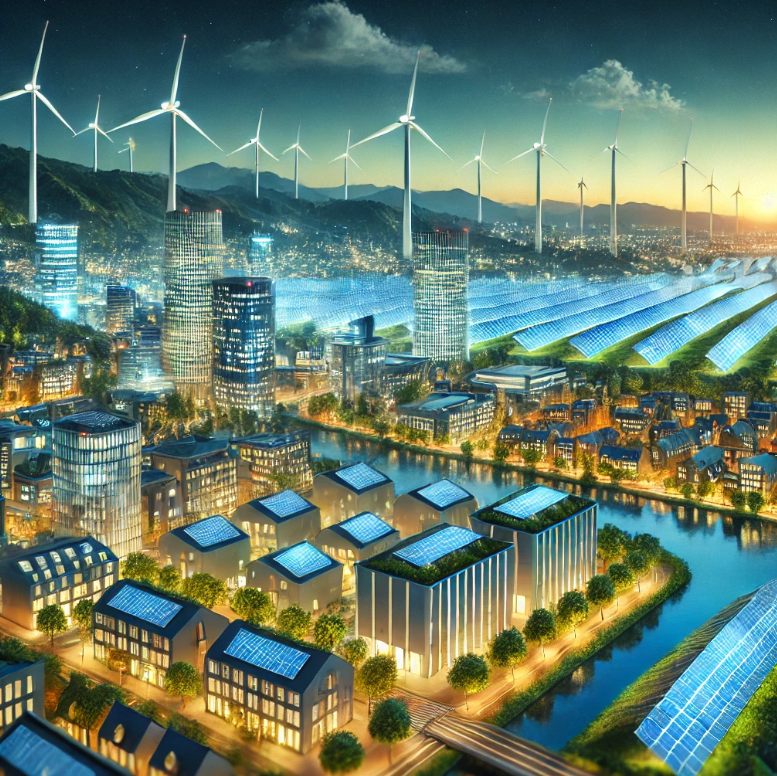EU Hits a Green Milestone: Cleanest Power Mix in 2024
The European Union continues to set the benchmark for sustainable energy, achieving its cleanest power generation mix ever in 2024. With renewables surging, emissions from the power sector were slashed by 59% compared to 1990 levels, according to Eurelectric. In fact, 2024 saw a 13% drop in emissions compared to 2023, making it a record-breaking year for clean energy.
Renewables Lead the Charge
- Renewables: Contributed an impressive 48% to the EU power generation mix.
- Nuclear Power: Held steady at 24%, remaining the single largest contributor.
- Fossil Fuels: Shrunk to their lowest-ever share of 28%.
Wind energy maintained its edge over natural gas, while hydro and solar power production surged by 40 TWh year-on-year. That’s enough to meet half of Belgium’s annual power demand or power all of Denmark for a year!
Electricity Prices Decline
The transition to renewables also brought down electricity costs:
- Average wholesale prices dropped to €82/MWh from €97/MWh in 2023.
- For most of the year, prices hovered even lower at €76/MWh, except during the high-demand winter months, when limited wind and solar caused temporary spikes in countries like Germany and Sweden.
The Rise of Negative Prices
Another notable trend: negative electricity prices were recorded 17% of the time in at least one bidding zone, reflecting how renewable energy can disrupt traditional market dynamics.
The Road Ahead
Eurelectric’s Policy Director, Cillian O’Donoghue, emphasized that while renewable investments are paying off, more work is needed:“Investing in higher renewable generation is the right path for a competitive and decarbonized economy. But this must be complemented by more flexible capacity to balance variability, reduce reliance on fossil fuels, and prevent price spikes.”Electrification also remains key to reaching climate goals. However, demand for electricity is growing at a slower pace than expected—up less than 2% compared to 2023 and still below pre-crisis levels. The decline is partly due to energy efficiency and savings, but over 50% of this reduction is tied to industrial slowdown.
Industrial Challenges
Germany, Europe’s industrial powerhouse, saw a 13% drop in industrial power consumption in 2023 compared to 2021. This downward trend likely continued in 2024, with industrial production declining 4% year-on-year.
A Brighter Future
The EU’s achievements in 2024 highlight the potential of renewables to drive down emissions and energy costs. However, it’s clear that sustained investment in flexible and resilient power systems, alongside industrial innovation, will be critical to maintaining momentum in the green energy transition. How do you see renewables shaping our future?
#RenewableEnergy #GreenFuture #EUClimateAction #Decarbonization #CleanEnergy #Sustainability

